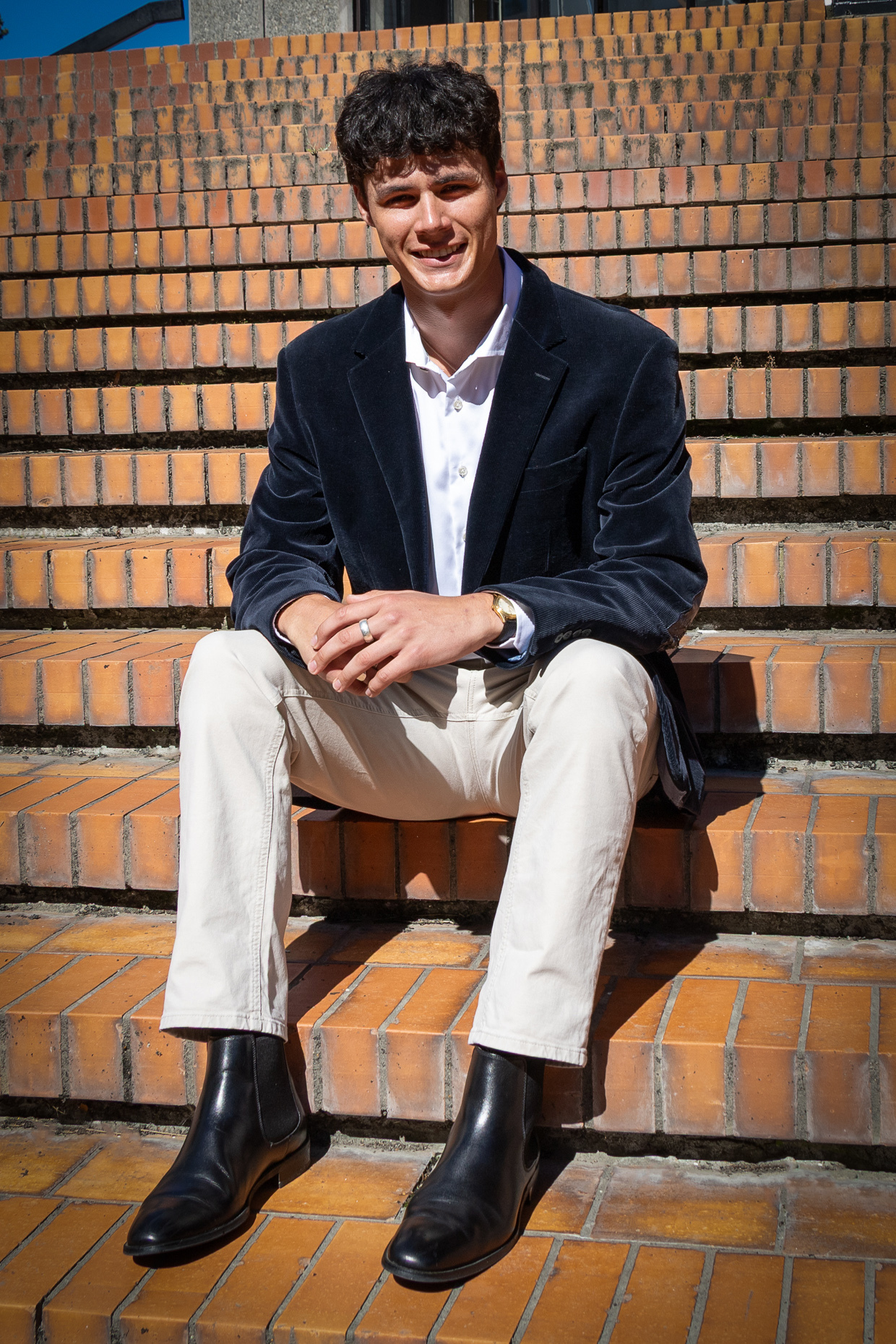Will Simcock (15018) – the neuroscience of novel depression treatment
30 Apr 2025
Old Boy Will Simcock has been awarded a University of Otago Doctoral Scholarship to complete his PhD in Neuroscience.
His innovative research targets a novel approach to helping people with treatment-resistant clinical depression.
A member of Jacobs House from 2016–2020, Will headed to Dunedin to undertake a Bachelor of Science majoring in Neuroscience with a minor in Pharmacology in 2021 after receiving a University of Otago Māori Entrance Scholarship.
He recalls being inspired by his “keen interest in the brain and an eagerness to better understand mental health disorders”.
During his degree, “my interest in mental health disorders and novel treatment strategies grew the more I learnt, and I knew I wanted to get involved in research”.
After completing his undergraduate degree, Will decided to study for a postgraduate Honours in Neuroscience and initiate his own research project.
“Under the supervision of Dr Ryan Ward, my research findings supported the notion that some of the deficits observed in schizophrenia may share a mechanism with the dissociative anesthetic ketamine,” he says. “This contributed to the still evolving literature of circuit-level alterations in function that underlie impairments in the integration and encoding of information in schizophrenia.”
With the completion of his research project, Will was awarded First Class Honours in Neuroscience, followed by the Doctoral Scholarship. Scholarship selection is based on academic merit and the applicant's potential for research. Will is going to be studying his PhD under the supervision of Professor Richard Porter.
“My PhD is investigating the role of actigraphy in response to treatment with ketamine and/or behavioural activation therapy (BAT) in patients with treatment-resistant clinical depression,” Will explains.
With BAT, rewarding activities and behavioural changes can help to counter negative emotions.
“Clinical depression is the most prevalent mental disorder in New Zealand, and treatment-resistance is associated with major individual and societal burdens,” he points out. “There is a critical need for novel and effective treatments.”
“When treating patients with ketamine, actigraphy measures alterations in the user’s daily sleep and activity patterns. It is an ideal tool to measure psychomotor function and circadian rhythm in severe depression which will provide us insights into factors impacting response to treatment, and patterns that may predict patient response.”
Will has also been working in the Psychological Medicine Department at the Christchurch campus of the University of Otago as a research assistant.
“Last year, I was awarded a summer research scholarship to spend time as part of the Eating Disorders Genetics Initiative team. I have since stayed on as a research assistant, working on several projects, including researching eating disorders among Māori in New Zealand and writing a paper with Dr Michaela Pettie. I am now working on a new paper investigating the impact of social media on children in Aotearoa, and how it influences eating disorder related factors and the development of eating disorders.”
During his time at College, Will, who plays the viola, also won a place in the New Zealand Secondary Schools Symphony Orchestra and represented the school in cycling and rowing at national events, alongside his academic achievements.

